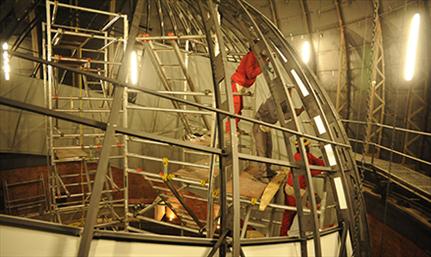Latest News Archive
Please select Category, Year, and then Month to display items
23 April 2020
|
Story Cornelius Hagenmeier
|
Photo Pixabay

The iKudu project, which is an European Union-funded Capacity Building in Higher Education (CBHE) project, has recently launched its blog, which aims to amplify the diverse voices of all iKudu stakeholders. In this space, members of the iKudu team will regularly share their views on the project and related international education topics.
The iKudu project focuses on developing a contextualised South African concept of Internationalisation of the Curriculum (IoC), which integrates Cooperative Online International Learning (COIL) virtual exchanges. The project was launched by the UFS in 2019, together with nine European and South African partner universities. It is funded by the European Union’s Erasmus+ programme with EUR999 881 (approximately R20 million) and is implemented over a three-year period.
The iKudu project is based on the fundamental belief that it is necessary to rethink internationalisation in an uncertain world. First, it is crucial to recognise and transform the power dynamics underlying international academic collaboration. Second, it is essential to develop pedagogies that allow every student to participate in international education, integrating technology where appropriate.
However, while all stakeholders agree on the fundamental tenets of the project and its principal goals, all iKudu stakeholders contribute different perspectives. In the blog, the iKudu stakeholders will provide a space for intellectual discourse on the project and related international education topics, which will allow constructive and critical engagement.
The link to the blog can be found at: https://www.ufs.ac.za/ikudu/ikudu-blogs/Transforming-Curricula-through-Internationalisation-and-Virtual-Exchanges
Interior dome of Naval Hill planetarium reaches completion
2013-09-04
|
 |
Work on the inside of the dome
Photo: Reinier Brönn
01 September 2013 |
The interior perforated aluminium planetarium dome has been installed by an American expert from Astro-Tec, the American company that customised the dome for the planetarium on Naval Hill. The planetarium, the first digital planetarium in sub-Saharan Africa, is scheduled to open in November 2013. The UFS manages the project.
The dome arrived in parts by ship from the USA in June 2013. These parts consisted of a number of long curved ‘ribs’ and numerous perforated panels. The panels were attached in sections to the ribs to form a smooth concave shell, creating the surface for the projection system.
The next step will be the installation of the projection system itself.
The 86-year old Lamont-Hussey Observatory on Naval Hill, also known as the Sterrewag Theatre, is home to the planetarium. The planetarium is the first component of a proposed Centre for Earth and Space. This will be a multi-purpose facility to promote science communication and preservation, and the arts.
This project is a long-term partnership between three main organisations, each bringing essential components to the project: the Mangaung Metro Municipality (MMM) as the land-owner, the Free State Department of Economic Development, Tourism and Environmental Affairs (DETEA) and the UFS, which developed the concept for the planetarium project and will be responsible for its operation and further fundraising endeavours.
The National Department of Science and Technology also joined this venture subsequent to providing substantial funding to the UFS in order to purchase the projection system for the planetarium.